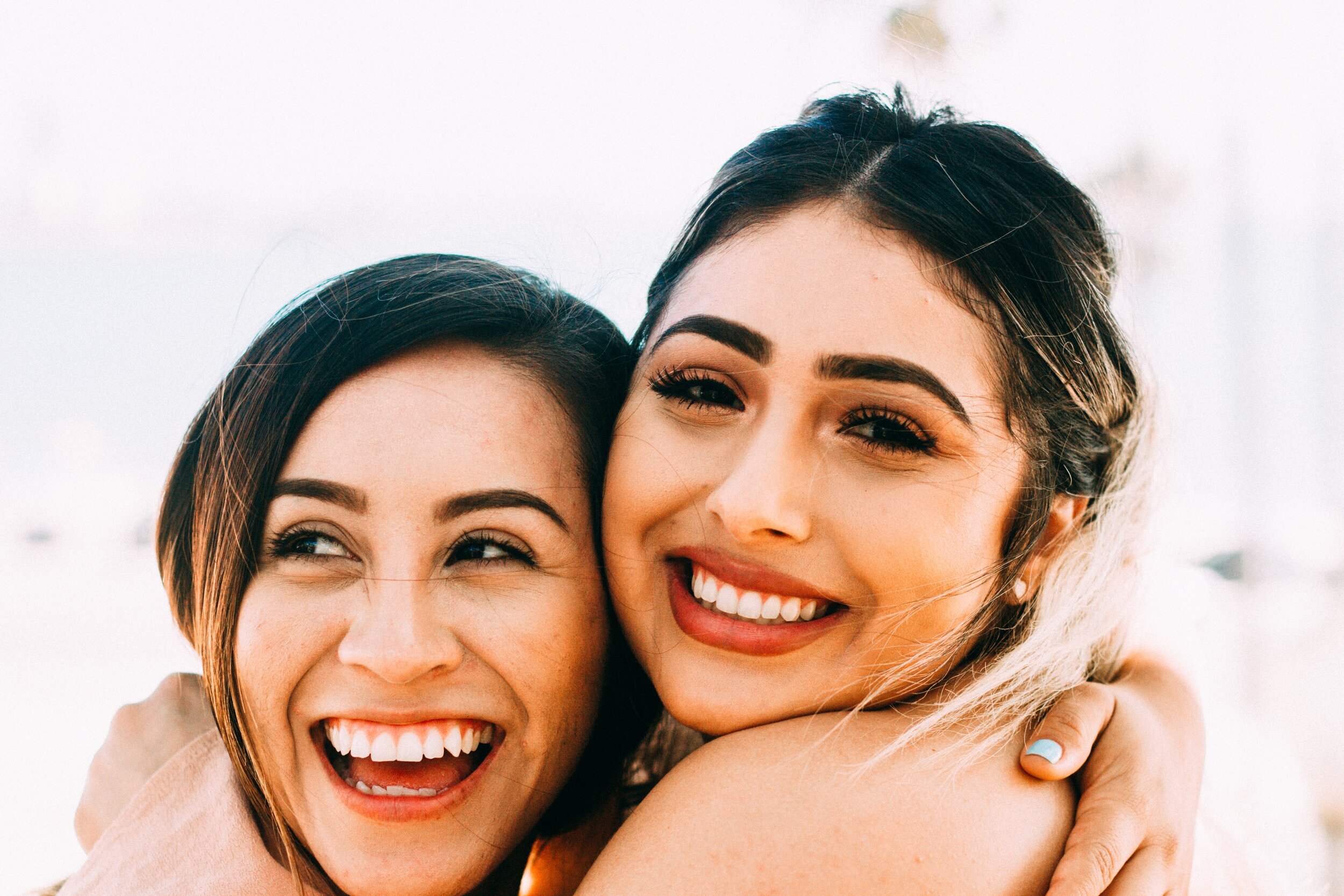
Most people have struggled with feeling like an imposter or fraud at one point or another. The feelings of self-doubt and fear of being “found out” are much more common than you’d think. When you’re in the depths of imposter syndrome, it can feel like you’re the only person who has ever felt this way, but you aren’t alone! I promise you, other people have felt this way too.
If you’re questioning whether you’re deserving of accolades, if you’re worried about whether you belong somewhere or not, or if you’re inner perfectionist is too loud, try these 3 journal prompts for navigating imposter syndrome.

For many people, religion and spirituality are sources of support, guidance, and community, providing a sense of belonging in the world. But sometimes, spiritual beliefs can be used as weapons of power and control that can cause significant trauma. This is religious trauma; the experience of coping with the damage of indoctrination. This might look like contemplating an engraved belief system or lifestyle, breaking away from a controlling community, chronic abuse, or dealing with the impact of ending one’s connection to a church or religion.
While some people experience direct, or shock trauma; something specific that happened that resulted in trauma, other people experience complex trauma; this means that over time, things have happened where one’s nervous system has consistently and constantly perceived threat, (purity culture messaging, messages about hell, what it means to be a woman, etc.) When put simply, religious trauma is trauma, and no two people experience trauma in the exact same way.

What happens to emotions that have been suppressed? Maybe you’ve heard the saying, what you resist, persists. When we avoid or reject emotions, the energy of those emotions gets stuck in the body. This is why we continue certain cycles and unhealthy patterns. The energy is never released and stays with us until we fully allow ourselves to feel. What we resist, persists.
Whether you don’t know how to feel your feelings, you don’t want to feel your feelings, or you’re struggling with feeling your feelings, we hope that this guide serves you in some way.

What happens when we intentionally and consistently use affirmations? Big things start to shift! Affirmations help to deprogram harmful thought patterns. You know the ones. The ones that tell you you aren’t worthy, you aren’t enough, you don’t belong. It’s time for those thoughts to go! They aren’t yours.
When we practice using affirmations a shift in our emotions, habits, and thought patterns begin to happen, leading us to live in closer alignment to our true, compassionate selves.
You deserve to feel empowered, worthy, and authentic, and you don’t have to wait around for someone to give it to you! Empower yourself today by using these affirmations. As always, take what you need, leave the rest.

Most of us have heard of the body positivity movement, and while its intentions are good, unconditionally loving one’s body and appearance can seem unrealistic to a lot of people, especially when we consider that 80% of women and 34% of men reported being dissatisfied with their bodies That’s why we want to share a middle ground with you, body neutrality, a place where liking your body isn’t a prerequisite for feeling good about yourself.

It can feel scary to admit you’re looking for friends as an adult when there is so much pressure around having really close friend groups. Whether you just moved to a new place, you work from home, or you’re feeling lonely, and you’re struggling to make a connection, know that there is nothing wrong with you, and you aren’t alone in feeling like this. Here are 5 steps to finding friends as an adult, even during a pandemic.

According to philosopher Khen Lampert, radical compassion is a specific kind of empathy directed towards the distress of others. This type of empathy is called radical because it includes the inner imperative to change reality in order to alleviate the pain of others. According to Lampert, this state of mind is universal and stands at the root of the historical cry for social change. Radical compassion means total compassion with nothing excluded. Radical self-compassion applies this empathy to the self. Here are 3 practices for exercising radical self-compassion for the wellbeing of yourself and all living things.

2020 wasn’t easy; an unforgettable year with so many challenges, changes, and hardships. This year also showed us how resilient humans can be, and what truly matters in life. Maybe this year you looked inward, disrupted generational wounds, rethought our criminal justice and policing systems, stood against injustice, explored and checked your privilege, created healthy boundaries, stayed home for the safety of the collective, asked for help, realized self-love is attainable, or maybe you just slowed down. Throughout it all, here we are! We’ve survived and that alone is worth celebrating. A new year does not mean you have to create a new you, but it can be a great opportunity to give yourself permission to turn a new page, to reconnect with what you value, and to feel better.

For most people, the holidays look very different this year. As we continue to adjust to our current reality, it’s important that we also work to maintain our mental health. From fears of the pandemic, the isolating effects of social distancing, confronting and relearning racial injustice in the U.S., natural disasters, financial struggles, and the stress of the presidential election, it’s no surprise that anxieties are high for many of us. Even without the pandemic to consider, we have to acknowledge the inevitable stress, anxiety, and depression that can come up for many people during the colder months and the holidays. This time of year is hard, and if you’re struggling right now, this is for you. Today we share 5 tips to help protect your mental health during and after the 2020 holiday season.

Humans are social creatures, and many of us find comfort in staying connected. When we are deprived of these deep social connections, we have a tendency to feel lonely or isolated. The longer this isolation and loneliness last, the higher our risk is for mental, emotional, and physical problems. Typically, loneliness is a signal to a depressive episode and is seen as an individual problem treated with things like exposure therapy. Now, isolation is a lot more nuanced. Because we are social distancing due to a global pandemic, “treating” loneliness and isolation behaviors takes a little more creativity.
Isolation makes you think that you are the only one, and you’re the only one who’s feeling alone and that’s not true. This is NOT a normal situation, and you’re already handling it – however that looks like for you. As this pandemic continues, we want to give you a few tools for coping with these hard feelings, because you really are not alone in this.